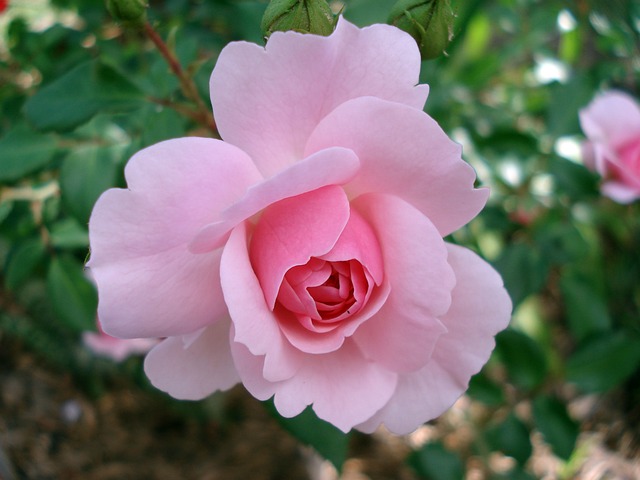
You have many options available to enable you to grow a vivacious and colorful organic garden of your very own. Once you learn about them, they are surprisingly easy to put into place.
Plant perennials that are slug-proof. Slugs and snails are voracious eaters that can destroy a plant literally overnight. These garden pests prefer perennials with thin, flat, delicate leaves, particularly if the plant is not yet mature. Others, though, are disliked by slugs and snails. Those with rough leaves or an unappetizing taste will be less desired by slugs and snails. Several good choices include heuchera, campanula, achillea, and euphorbia.
There is no need to purchase a costly chemical if your plants develop powdery mildew. A great home remedy is to mix baking soda with water and a little bit of liquid soap. Use a spray bottle to apply to your plants weekly until the issue clears up. Baking soda won’t harm your plants, and takes care of the mildew efficiently and gently.
It’s sometimes possible to save certain plants from winter cold by bringing them inside. Choose the plants that are most likely to survive. Dig around roots carefully before transferring to a pot.
Before you even start planting the garden, check the soil. There are soil testing services that can analyze a garden’s soil content for a small charge. With those results, it’s then possible to refine and supplement the soil to make it as fertile as possible. Cooperative Extension departments often offer this testing service. It is a worthwhile effort so a garden can be productive on the first year of planting.
When it’s autumn, you know what that means. It’s time to plant fall vegetables! If you want to find an interesting container for your lettuce or kale, try a pumpkin! After cutting an opening and removing the meat and seeds from inside the pumpkin, use Wilt-Pruf, sprayed throughout the inside and cut edges, and prevent rot from occurring. You can start planting now.
Do not mow your lawn too short. If you leave more height to your grass, the roots will grow deeper into the soil, making the lawn stronger and more resistant to drying out. Short grass means short roots and dead grass.
A great garden starts from the seeds and not from the plants. Not only is this more of an effective method for horticulture, but it’s also more environmentally-friendly. It’s better for your garden, in particular, because transplants have high failure rates; whereas, sprouting a seed and growing a plant in the same conditions is better. Additionally, it’s better for the environment, because the plastic pots used by most greenhouses are generally not recycled and are cluttering landfills.
Pest control can become a major issue. The vegetables are intended to be eaten, thus you should refrain from using harsh pesticides and chemicals. Instead of resorting to these harmful chemicals, you can keep garden pests at bay simply by paying close attention. If you catch them early, you can take them off the plants by hand.
Having a garden of perennials can be an easy and quick process. Use a spade to dig up some soil, flip the soil over, and finally, sprinkle around 3-4 inches of wood chips on the soil. Allow a few weeks to pass by before you dig down into the applied soil.
After your seeds have sprouted, heat lamps are not needed. Locate your plants further from your heat source as they mature. Also take any plastic films off of your containers, so you can keep the warmth and humidity out. Watching your plants as they grow will give you the insight on when to employ these tactics.
You can kill weeds naturally. Layer sheets of newspaper on the surface of areas where you are trying to control weeds. It is a fact that weeds cannot thrive without light from the sun. If you place sheets of newspaper over the weeds, they will die due to a lack of sunlight. You can use newspapers because of how nicely they break down, they can be added into compost. You can cover the newspapers with mulch to make them look more attractive if you like!
You need to mulch your flowerbed and garden using at least 3 inches worth of organic material. This will add nutrients to your soil, keep it moist, stop the growth of weeds and keep the garden looking beautiful.
Anyone can have a garden, but it takes knowledge to have a productive and healthy one. These tips on organic gardening are here to guide you on the right path.